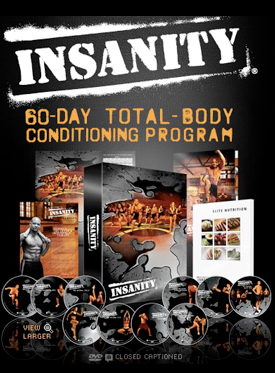New data published in the New England Journal of Medicine (NEJM) and featured at the European Society for Medical Oncology (ESMO) Congress 2021 highlights a promising new treatment for individuals with HER2-mutant non-small cell lung cancer (NSCLC).
Newswise: Latest News
International Clinical Trial Delivers Promising Results of HER2-Targeted Therapy for Non-Small Cell Lung Cancer
AstraZeneca’s Oxford vaccine trial to resume, the university says
The AstraZeneca coronavirus vaccine trial, halted last week after an unexplained illness in one of the volunteers, will resume, the University of Oxford announced Saturday.
McConnell says best for country to hold Senate trial after Trump leaves office
After the House impeachment vote, Senate Majority Leader Mitch McConnell said it would be best for the country if a Senate trial were held after Trump leaves office.
ABC News: Top Stories
NIH ‘very concerned’ about serious side effect in AstraZeneca coronavirus vaccine trial
The Food and Drug Administration is weighing whether to follow British regulators in resuming a coronavirus vaccine trial that was halted when a participant suffered spinal cord damage, even as the National Institutes of Health has launched an investigation of the case.
Promising treatment to slow kidney disease doesn’t prove out in clinical trial
Progression of kidney disease in type 1 diabetes is correlated with increased amounts of uric acid. A drug that reduces uric acid levels was tested in a multi-institution randomized clinical trial. Though the study did not show the desired clinical benefit, it did provide a very clear answer to an important scientific question.
Latest Science News — ScienceDaily
AskNadia: Type 1 Wondering If Her Daughter Should Participate in The Trial Net Study
Dear Nadia,
What are your thoughts on Trial Net? I am a 33-year-old with Type 1 who was diagnosed a year and a half ago. I have a 4-year-old daughter, and I’m always worried she’s going to get it too. Whenever she shows any symptoms, I panic and check her blood sugar (without worrying her or telling her what I’m doing). My diabetic nurse counselor suggested I have her screened with Trial Net to see what the chances are she will have it.
My question is – is there a point? It’s not like knowing will prevent it. It could indicate a high percentage, and then I’ll always live in fear, waiting. Or it could be a low chance, and I feel relieved, but ultimately, she could still get it.
Thoughts?
Thank you,
Jessica MacKinnon
Dear Jessica:
My two children have a father with type 1 diabetes. When they were eight and nine years old, my former husband and I discussed whether we should enroll them in the Trial Net study.
One year while attending the Children with Diabetes conferences in Las Angeles, I spontaneously decided to have them tested.
Like you, our concern was that every year the children were tested, we would dread the results. On the flip side of that, we also felt if there was a loss of beta cells and their blood sugars were abnormal, putting them on insulin sooner than later may prolong a honeymoon period, minimizing the daily insulin required.
With that being said, testing the kids at the Children with Diabetes Conference did offer us some relief. The test results came out negative for both. The following year, we did not have the children tested because we decided there wasn’t much we can do to prevent a diagnosis. On the positive side, we also knew how to manage type 1 diabetes, and this did provide a tremendous amount of comfort.
Type 1 Diagnosis by Marriage
We do have a family member by marriage who developed type 1 diabetes at 45. The wife who does not have diabetes is a blood relative to my former husband Scotty. They did decide to test their two daughters. The eldest daughter Georgina did receive a positive test result.
After receiving your question Jessica, I reached out to Georgina, wondering now that she is an adult with a 12 year old son, what her reflections are in participating in the study and how she felt about her 12 year-old being tested.
My conversation with her is in a Q&A format.
Nadia: How old were you when your father was diagnosed with type 1 diabetes?
Georgina: I was in 7th or 8th grade. I was 12-13 years old.
Nadia: How did you feel about it- was it a scary event?
Georgina: It was a very scary thing. My father was always so strong and unbreakable. At my age, he was the person who protected us. When he was there, I was never scared or worried. To see him sick made me feel scared and uncertain. He worked away from home on the North Slope of Alaska, and he was gone for long periods of time. One day he came home early because he was losing so much weight and had low energy. Once I saw how much weight he lost it was scary. He had always been a muscular, robust person and when he came home at that time and had lost so much weight, he looked like someone else’s Dad. He got well and gained his strength and health back, but that was a very defining time for me.
Nadia: Any thoughts about what it meant to you?
Georgina: During that time, my mother had some medical training. She explained to me that this was a genetic disease and that it was very possible that my sister or I could “come down” with it too. At the time, I did not realize it, but she was preparing us to handle this type of diagnosis for ourselves along with learning what the new normal was for my Dad. I do thank her for her proactive approach and allowing us to work through the process of accepting Type 1 diabetes.
Nadia: Did your parents ask you about participating in the Trial Net Study? How was it explained to you?
Georgina: I was right out of high school when I started testing for the clinical trial. Scotty, suggested I participate. The closet Trial Net Study to us was at Stanford. I think it was called “Pediatric Type 1 Diabetes Study” which tested the markers/antibodies for the offspring of T1D parents, and their likelihood of getting diagnosed with Type 1 diabetes.
It was only for pediatric patients, and therefore my mom had to push to get me enrolled because I was almost 18 and would not be a pediatric patient for long. My sister and I both did the initial blood test. It was determined that she did not have the antibodies that would lead to T1D, but I did.
I was old enough to understand the test results and asked my own question. As a student of science in college, I realized that I could get involved in the experimental or controlled group.
The experimental group was given low doses of insulin to help their pancreas last a bit longer (that was their theory at the time). The controlled group would continue to be tested and monitored to see how long it took for them to develop T1D.
I hoped and wished to be in the experimental group, but I got the letter a few months later that I was to be in the controlled group. Disappointed I decided to continue with the trial for a few years. I felt that at least this would keep me in the loop for a diagnosis and that I was a part of something that could help people like my Dad.
I did end up dropping out of the study for a few reasons:
1- I was in the controlled group
2- I was not in pediatrics. The doctors who were doing the testing were a little irritated with this fact
3 – I hated the glucose tolerance tests that I had to take. It made me feel sick. At the time, I was worried that the massive amount of sugar in the drinks would burn my pancreas up and
4 – I did not want to take the time out of my busy college and work schedule, drive down three hours one way to go in and give data for a trial that was not giving me any benefit.
Nadia: When you knew you had the type 1 marker- how was this information relayed to you? Did it change you? What was your reaction? Did you start taking insulin?
Georgina: I was not surprised when I learned that I had the T1D marker. I somehow knew that it was something that I was going to have to deal with as an adult like my Dad. I did not start taking insulin because that would have violated the requirements of the control group that I was in. I did suffer from a lot of hypoglycemic events. It always seemed that my pancreas was working overtime. I paid attention to the science, and I learned what diabetes was, what caused it, and how people dealt with it. Of course, Scotty was a significant influence with my Dad and in turn myself. I paid attention to what Scotty said, read his magazines, and learned from him. Being educated is huge when trying to take on such a big responsibility and be successful. Knowing that I had the antibodies in my system was not a bad thing really – I was glad to know that I was a future diabetic and it was just a matter of time. When I graduated college, and got my first full-time professional job with medical insurance, I got the diagnosis and was off and running as a new and mostly functional T1 Diabetic.
As a side note, I was diagnosed at age 23 in 1997. At that time, the doctor told me that I had Type 2 diabetes because I was too old to be a Type 1. We know now that this is not the case. My father was diagnosed as a Type 1 when he was in his 40s. It has now been established that the US military servicemen who served in Vietnam in the 60s and were exposed to Agent Orange are being diagnosed with all kinds of horrible things, including T1D. The Veteran’s Administration has taken responsibility and now admits that the chemicals in the Agent Orange were enough to mutate my father’s DNA causing the autoimmune response, making his body attack his pancreas, causing a T1D diagnosis.
I fully suspect that this is why I have T1D and why my sister has Multiple Sclerosis. It is an environmental toxin that caused my father’s DNA to mutate enough to be passed on to his offspring. It makes me angry! It also makes me unhappy for people to think that T1D is something that can be prevented. In our case, this is far from the truth.
Nadia: Looking back- what are your thoughts about Trial Net? Is your son enrolled? If not, why?
Georgina: My thoughts on the trial are that it gave me hope and information at the time that I needed it. It did not give me any health benefits, and at the end of it all, I was just providing data for a study.
These studies are necessary, yet I wonder if I could have prolonged my life diabetes-free if I had been in the experimental group and given insulin when it was shown that I had the antibodies. I have one child, a son, who is 12 and very healthy. I thought about getting him involved in a trial or study, but I did not for a couple of reasons:
1 – We live in a very rural community and getting involved would take some extra unwanted travel
2 – His pediatrician advised against it saying that it really would not help him in the long run and I should stay vigilant looking for symptoms and let him live his life happy and healthy out of the doctor’s office and
3 – I just had a gut feeling that it was not necessary – if that changes then I am open to enrolling him in any study if I think it would be helpful.
Nadia: Thanks Georgina
Georgina: Thanks, Nadia – I appreciate your publication and am excited to read the next issue!
If you would like to learn more the Type 1 study, go to Type 1 Diabetes Trial Net.
Disclaimer:
Nadia’s feedback on your question is in no way intended to initiate or replace your healthcare professional’s therapy or advice. Please check in with your medical team to discuss your diabetes management concerns.
AskNadia and receive her unique perspective on your question.
About Nadia:
AskNadia (ranked #1 by Google), named “Best Diabetes Blog for 2017 by Healthline and one of the top 50 diabetes influencer’s blog that is a must follow, and with 23 nominations, Nadia Al-Samarrie’s efforts have made her stand out as a pioneer and leading patient advocate in the diabetes community.
Nadia was not only born into a family with diabetes but also married into one. She was propelled at a young age into “caretaker mode,” and with her knowledge of the scarcity of resources, support, and understanding for people with diabetes, co-founded Diabetes Interview, now Diabetes Health magazine.
For heart disease, meds may work as well as invasive surgery, major trial shows
High-risk patients with stable heart disease may fare just as well on medications alone, versus having invasive heart operations such as stents and bypass surgeries, according to a major trial. The results were presented Saturday at the American Heart Association’s yearly conference.
Opioid settlement talks fail, landmark trial expected Monday
A landmark trial over the U.S. opioid epidemic is on track to begin on Monday after drug companies and local governments failed to agree on a settlement on Friday that had been expected to be valued at around $ 50 billion.
Roche’s Tecentriq meets targets in lung cancer trial
ZURICH (Reuters) – A combination of Roche’s Tecentriq immunotherapy with chemotherapy helped people with a form of lung cancer live significantly longer than patients on chemotherapy alone, a late-stage trial cited by the Swiss drugmaker showed.
U.S. jury fails to reach verdict in latest J&J talc trial
NEW YORK (Reuters) – A South Carolina jury on Friday could not agree on a verdict in a case of a woman whose family said her long-term use of Johnson & Johnson’s Baby Powder led to her death from asbestos-related cancer, resulting in a mistrial.


